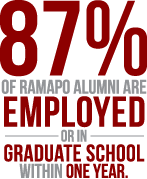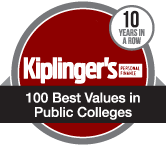College Catalog: 2014-2015
School of Theoretical and Applied Science (TAS): Biochemistry (B.S.)
Website: School of Theoretical and Applied Science
Convener:
- Jay Carreon
Faculty:
Faculty:
- William Mitchell
- Joost W. Monen
- Thomas Owen
- Ash Stuart
- Lorraine Tan
- Yan Xu
Biochemistry is an interdisciplinary field concerned with the chemical composition, structure, and molecular functions of living organisms. Knowledge derived from the disciplines of chemistry, physics, and biology is used to understand the processes that operate in cells and organisms, including their metabolism and regulation. Biochemistry attempts to understand the uniqueness of complex evolving living systems; how living organisms harvest energy from their environment to produce and maintain their complexity; and how these structures replicate themselves. The knowledge garnered from biochemical research has been applied to solve problems in areas ranging from agriculture to medicine. Specific areas of biochemistry include principles of protein structure (amino acid chemistry, peptide and protein structure and protein folding), enzymes (mechanisms, enzyme kinetics and inhibition), nucleic acids (nucleotides and nucleic acid chemistry, DNA sequencing, protein and genetic engineering) and metabolism (carbohydrate structure, glucose catabolism, citric acid cycle).
A bachelor’s degree in biochemistry provides the essential background and training that can open a variety of career pathways for students upon graduation. The biochemistry major is excellent preparation for professional studies in the health sciences; for secondary school teaching in the biological and physical sciences; for research in the pharmaceutical and chemical industry; for technical writing, sales, and service; and as the basis for graduate studies. The combination of chemistry, molecular biology, enzymology, and genetic engineering found in biochemistry provides the foundation to contribute to the rapidly expanding field of biotechnology.
Biochemistry students taking both Advanced Inorganic Chemistry Lecture & Lab (CHEM 443) and Biochemistry II Lecture (CHEM 446) can be certified by the American Chemical Society.
At the end of their studies at Ramapo, graduating Biochemistry majors should:
- have a general knowledge of the basic area of biochemistry and have the ability to apply it in a problem-solving environment; be proficient in basic chemical, biochemical, and physical laboratory skills
- have conducted a research project as part of an upper level course or as a participant in active, individual laboratory research within the college or appropriate cooperative education assignment
- have the ability to communicate scientific information clearly and precisely, both orally and in writing
- have an understanding of the principles and applications of modern instrumentation, computation, experimental design, and data analysis
- have the ability to formulate and carry out strategies for solving scientific problems
Ramapo has modern laboratories for chemistry, biochemistry, genetics, molecular biology, and physics that are utilized in the major. There are opportunities for students to do research with faculty and for experiential learning through cooperative education in nearby industry. The program is supported by computer labs that are available for student use to supplement the instruction in the lecture and laboratories. The major in Biochemistry is offered by the School of Theoretical and Applied Science and leads to a B.S. degree.
- Transfer students who have 48 or more credits accepted at the time of transfer are waived from the courses marked with a (W) below. Waivers only apply to General Education Requirements NOT School Core or Major Requirements.
- Double counting between General Education, School Core, and Major may be possible. Check with your advisor to see if any apply.
- Writing Intensive Requirement (six courses): three writing intensive courses in the general education curriculum are required: First Year Seminar, Critical Reading and Writing, and Readings in the Humanities; the other three courses are taken in the major.
- Not all courses are offered each semester. Please check the current Schedule of Classes for semester offerings.
BIOCHEMISTRY MAJOR
- Subject & Course # – Title & Course Description
- GENERAL EDUCATION REQUIREMENTS
- INTD 101 - FIRST YEAR SEMINAR (W)
- SELECT ONE – (W) BADM 115 - PERSPECTIVES OF BUSINESS AND SOCIETY OR
- (W) SOSC 101 - SOCIAL ISSUES
- CRWT 102 - CRITICAL READING & WRITING II
- AIID 201 - READINGS IN THE HUMANITIES (W)
- SELECT ONE – (W) GE-HISTORY CATEGORY: HIST 101-110
- SELECT ONE – GE-INTERCULTURAL NORTH AMERICA CATEGORY
- SELECT ONE – GE-INTERNATIONAL ISSUES CATEGORY
- SELECT ONE – (W) GE-TOPICS ARTS AND HUMANITIES CATEGORY OR
- (W) GE-TOPICS SOCIAL SCIENCE CATEGORY
- SCHOOL OF THEORETICAL AND APPLIED SCIENCE REQUIREMENT
- SCIENCE IN CULTURAL PERSPECTIVE COURSE LIST*: SELECT ONE
- AMER 307 - TECHNOLOGY AND CULTURE IN AMERICA
- ANTH 307 - MEDICAL ANTHROPOLOGY
- CNTP 315 - ART ON THE INTERNET
- COMM 307 - ENVIRONMENTAL WRITING
- ENST 215 - ENVIRONMENTAL HISTORY
- ENST 223 - ENERGY AND SOCIETY
- ENST 305 - ECOLOGY, ECONOMICS AND ETHICS
- ENST 312 - ECOLOGICAL ANTHROPOLOGY
- ENST 313 - APPROPRIATE TECHNOLOGY
- ENST 317 - ENVIRONMENTAL POLICY AND REGULATION
- HIST 396 - HIST OF SCIENTIFIC THOUGHT
- INFO 315 - COMPUTER LAW AND ETHICS
- LAWS 390 - TOPICS:
- MATH 441 - HISTORY OF MATH
- MGMT 324 - INVENTION FOR MANAGERS AND SCI
- PHIL 322 - PHILOSOPHY OF SCIENCE
- PHIL 328 - BIOETHICS
- PSYC 306 - ETHICAL AND LEGAL ISSUES
- PSYC 423 - HISTORY AND SYSTEMS OF PSYCHOLOGY
- SCIN 210 - SCIENCE, TECHNOLOGY, AND SOCIETY
- SCIN 230 - COMPUTERS AND SOCIETY
- SCIN 235 - HISTORICAL TRENDS IN NURSING
- SCIN 310 - AIDS:BIOLOGICAL, MEDICAL, SOCIAL PERSPECTIVES
- SCIN 346 - SURVEY OF SCIENCE FICTION
- SCIN 390 - TOPICS:
- SCIN 434 - WOMEN AND SCIENCE
- SOCI 230 - SOCIOLOGY OF HEALTH & MEDICINE
- * Please consult the School of TAS for the currently active courses which meet the SCP requirement.
- BIOCHEMISTRY MAJOR REQUIREMENTS
- BIOL 110 - FUNDAMENTALS OF BIOLOGY I: LECTURE AND LAB
- BIOL 112 - FUNDAMENTALS OF BIOLOGY II
- CHEM 110 - FUNDAMENTALS OF CHEMISTRY I: LECTURE AND LAB
- CHEM 112 - FUNDAMENTALS OF CHEMISTRY II: LECTURE AND LAB
- PHYS 114 - PHYSICS I WITH CALCULUS: LECTURE AND LAB
- PHYS 115 - PHYSICS II WITH CALCULUS: LECTURE AND LAB
- CHEM 210 - ORGANIC CHEMISTRY I: LECTURE AND LAB
- CHEM 212 - ORGANIC CHEMISTRY II: LECTURE AND LAB
- MATH 121 - CALCULUS I
- MATH 122 - CALCULUS II
- BIOL 331 - GENETICS: LECTURE AND LAB
- CHEM 323 - ANALYTICAL CHEMISTRY: LECTURE AND LAB
- BIOL 406 - CELL AND MOLECULAR BIOLOGY: LECTURE AND LAB
- CHEM 340 - PHYSICAL CHEMISTRY I: LECTURE (Spring semester)
- CHEM 341 - PHYSICAL CHEMISTRY I: LAB (Fall semester)
- CHEM 426 - BIOCHEMISTRY I LECTURE AND LAB (Fall semester)
- CHEM 446 - BIOCHEMISTRY II LECTURE * (Spring semester)
- RECOMMENDED ELECTIVES:
- BIOL 310 - MICROBIOLOGY: LECTURE AND LAB
- BIOL 357 - IMMUNOLOGY
- BIIN 351 - PROTEIN STRUCTURE AND MODELING
- BIIN 430 - BIOINFORMATICS: LECTURE AND LAB
- CHEM 400 - INDEPENDENT STUDY: CHEMISTRY
- CHEM 421 - ADVANCED ORGANIC CHEMISTRY
- CHEM 424 - INSTRUMENTAL ANALYSIS
- CHEM 443 - ADVANCED INORGANIC CHEMISTRY: LECTURE *
- CHEM 445 - MEDICINAL CHEMISTRY
- CHEM 450 - SPECIAL TOPICS
- SRSH 301 - TAS RESEARCH HONORS
- SRSH 302 - TAS RESEARCH HONORS
- SRSH 401 - TAS RESEARCH HONORS (with distinction)
- SRSH 402 - TAS RESEARCH HONORS (with distinction)
* Advanced Inorganic Chemistry Lecture/Lab (CHEM 443) and Biochemistry II Lecture (CHEM 446) must be taken to be certified by the American Chemistry Society.
Note: A 2.0 GPA in the major is required for graduation.
General Education Requirements
Four Year Plan
Graduation Requirements
School of Theoretical and Applied Science Website
Faculty Profiles






